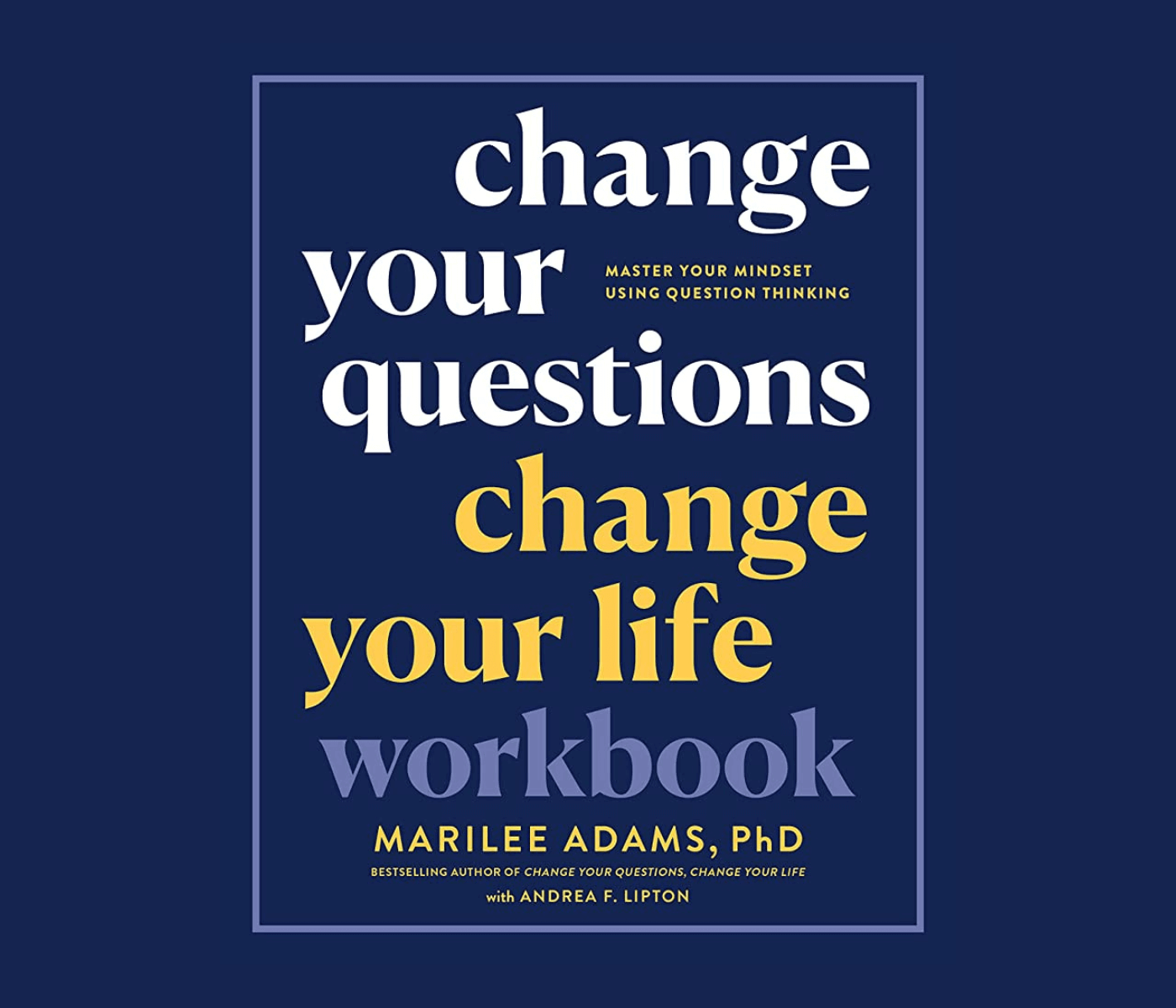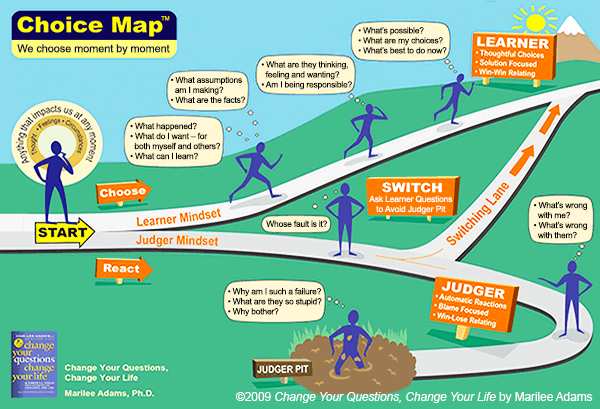
Leaders and sales professionals often face challenging conversations that test their abilities to communicate effectively and build positive relationships. However, there is a transformative workbook that has shifted mindsets and improved both professional and personal lives: “Change Your Question, Change Your Life” by Marilee Adams. In this article, we will explore how this workbook helped me navigate difficult conversations by becoming aware of my patterns and transforming my mindset.
Understanding the Judger and Learner Mindsets:
“Change Your Question, Change Your Life” introduces the concept of two mindsets: the Judger mindset and the Learner mindset. By using the workbook’s coaching questions, I discovered the impact of my Judger self-talk during challenging conversations, which affected my self-esteem and confidence without my conscious awareness.
The Impact of Questions: Reactions vs. Choices
Judger questions:
- Why am I such a failure
- Why are they so stupid
- Why bother?
- Whose fault is it?
- What’s wrong with me
What’s wrong with them?
These questions lead to an automatic reactions, blame focused, win-lose relationships.
Learner’s questions:
- What happened?
- What do I want for both myself and the other person?
- What can I learn?
- What assumptions am I making?
- What are the fact?
- Am I being responsible?
- What are my choices? these questions lead to thoughtful choices, solution focused, win-win relationships.
Compare the feelings when you read the Judger’s questions and the Learner’s questions. Which feeling do you prefer?
Developing Effective Communication Strategies:
By following the coaching questions from the book, I developed a clear action plan for effective communication. I became more conscious of the labels I placed on others and discovered new perspectives about myself and my colleagues. This newfound awareness allowed me to communicate more effectively with my partner, leading to happy personal relationships, as well as with my colleagues to ensure the success of our projects.
The ABCD Technique: Switching from Judger to Learner:
The workbook introduces a powerful technique called the ABCD technique, which helps individuals transition from a Judger mindset to a Learner mindset. The technique involves:
A – Awake: Recognizing whether we are in a Judger mindset. B – Breather: Taking a pause to create space for a mindful shift. C – Curious: Exploring what is truly happening and what positive difference can be made. D – Decide: Choosing who we want to be in that moment and determining our actions.
By consciously applying the ABCD technique, we gain the ability to make thoughtful choices and foster win-win relationships instead of falling into automatic reactions and blame-focused dynamics.
Choice map.
The workbook provides a helpful illustration called the “Choice Map,” which serves as a guide to developing effective communication strategies. It empowers individuals to create their own insightful questions and navigate conversations with clarity and intention.

Through the workbook’s guidance, I learned to differentiate between facts, assumptions, and interpretations. This helped me make more informed judgments and fostered solution-focused conversations instead of being judgmental.
Preparing for Successful Conversations:
Towards the end of the workbook, a section called “Q-prep” provides a series of questions to prepare for conversations. These questions include identifying goals for the conversation, understanding our assumptions, and considering the other person’s perspective.
Example:
- What are my goals for this conversation (for myself, the other person and the situation)?
- What questions am I asking myself about myself, the other person and the situation?
- What assumptions am I making about mysefl, the other person and the situation?
- What questions might the other person be asking about themselves,me, the situation?
- What questions might the other person ask me?
- What questions do I need to ask the other person so the conversation is successful?
- How might Judger mindset get triggered during this conversation?
- What switching strategies will I use?
- How can I prepare to Listen the other person with Listener easrs?
- What would be a win-win for myself and the other person?
To better prepare myself for future conversations, I decided to create my own Learner meditation. Using the Mindist app, which is free and offers a variety of background music options, I recorded my meditation. I now listen to this recording daily, as the familiarity of my own voice helps the brain to trust and internalize the message, making the meditation even more impactful.